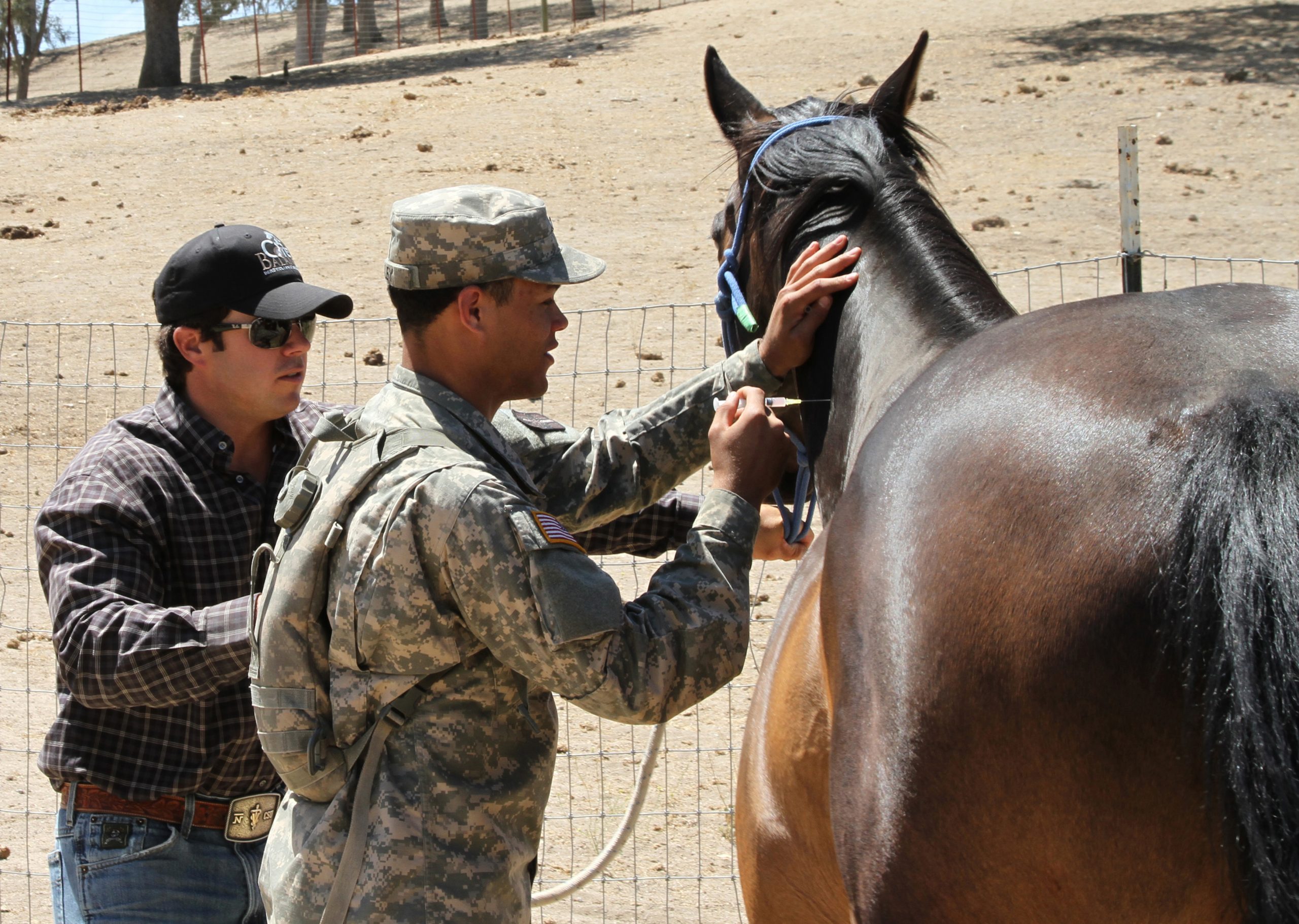Last Updated on June 28, 2020 by Allison Price
Deworming a horse is a process of removing parasitic worms that live inside a horse. These parasites feed on the nutrients that your horse is supposed to be getting. They make the horse feel weak and ill. When horses have worms, they lose weight and their appetite. They also show symptoms like vomiting. It may become fatal if left untreated.
Horses must always be kept on a planned, managed deworming schedule. This is to prevent parasites from entering the horse’s system. There are different ways to remove worms. But the most common way to remove them is through medication. One of our concerns is the cost. Deworming a horse costs from 3 to 15 dollars per dosage depending on the brand. We will discuss these things and a lot more in this article.
Deworming
Keep horses on a planned, well managed deworming program. Parasites are the number one cause of medical colic. They rob your horse of nutrients and cause a variety of other health issues. In the long run, a good deworming program will save most horse owners money.
Mentioned above is the range of the cost of deworming horses. One-year supply wormer packs can cost 30 to 55 dollars. To estimate, most horse owners pay about 30 to 90 dollars per year with medications to deworm their horse. Experts recommend deworming once every three months. A hospital located in India charges 12 dollars each quantitative fecal egg count. They charge about 16 dollars for each dewormer. It costs a horse owner 55 dollars per year for all deworming sessions.
Other horse owners would prefer the older way to deworm a horse. It is by administering a paste dewormer every 8 weeks. It will cost for 93 dollars per year.
Signs That A Horse Has Worms
A horse may be clothed with the following signs:
- Weight loss
- Loss of appetite
- Exhaustion
- Despite good nutrition, the horse is not gaining weight
- Stomach problems
- Intestinal obstruction
- Constipation
- Diarrhea
- Jaundice
- Depression
- Anemia
- Leg swelling
- Cough
- Labored breathing
- Discharge from the nose
- Tail sweeps
- Dull ruffled wool
- Decreased performance
It is an important thing to take care of your horse. Pay attention to his physical and mental health.
How The Horse Worming Works
Know how badly the horse suffers and what particular parasites are present in its body. To do this, pass the analysis of manure in the laboratory. Only after that you can choose the right product and calculate the duration of action. The results will be within 7-12 hours if the stage is not running. But if there are too many worms, 24 to 48 hours may be required. There are also drugs that must be taken within a few days to achieve the desired result. Thus, consult a veterinarian having passed the tests. Anthelmintic drugs must not threaten the animal with any harm. Colic can happen and the horse can feel bad if there is severe infection with adult worms and larvae. Colic may appear within an hour. And during this time, it is necessary to keep the horse under observation.
After 17-20 days, re-examine to make sure that your horse is healthy and the drug has acted as it should. Drugs can either impede the nutritional process of the parasites or cause paralysis. After deworming for 48 hours, it is necessary to thoroughly remove the entire litter. Disinfect the floor and walls with an antiseptic solution. It is important to clean out all the stables and items of care.
Managing Your Horse After Worming
There are considerations to take into account. There are two reasons why you should manage horses carefully after worming. First, to optimize parasite control for your horse. Second, to help slow down wormer resistance. But also to lessen the effect of the strong chemicals in the environment.
Immediately After Worming.
All worming drugs are essentially poisons. Most are dangerous to aquatic life. They also have a negative effect on dung beetles and other microorganisms. To avoid contamination, bring the horse onto a surfaced area to administer the wormer. This area, if possible, must be easily cleaned if necessary. It’s better than worming him in the field. Dispose packaging carefully, preferably in a bin with a lid.
The Next 24-48 Hours
Many of the data sheets for wormers tell stabling for two to three days after worming. Be careful to follow the advice on the data sheets. This is to prevent the chemicals getting into water courses. Especially if horses are grazing fields with ponds, streams and ditches. It is unusual but not unheard of to see worms passed in the horses’ droppings. Any that are shed after worming will not be able to survive outside the body. They are not a reinfection threat to horses grazing the pasture.
Don’t Worm and Move
Move a horse to a clean pasture after worming. This is to favor the development of a resistant worm population. If a horse is moved right away, only the resistant worm strains will survive and reproduce. This greatly speeds up the resistance problem on the land. Instead, go back onto the original pasture after worming. This is to dilute the population of resistant worms with those still susceptible to the drug. It will help slow down worm resistance on your fields.
Good Management
The aim is to give our horses as few wormers as possible. Use worm egg counts and other diagnostic tools to reduce the frequency of chemical doses. This will protect our environment and prolong the life of our drugs. Aim to break the life cycle of the worms by mechanical means. We can do this by poo picking, cross grazing or harrowing. We cannot always rely on regular chemical intervention.
Summary
Horses are often affected by worms. So, the horse needs a worming procedure. By doing this, we can protect them from unwanted parasites and bring them back to their usual frisky mood. If we don’t, our expenses may increase because of the emergencies our horses may face. They should be in a deworming program to avoid health risks. It might cost an amount. But it is nothing compared to the amount you shoulder when they get sick because of parasites.


